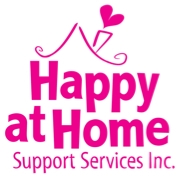24/7 Nurse Managed Care ~ Need help deciding which type of care best suits you? There are all types of care options out there in today's world. We can provide you with the peace of mind you are looking for knowing that all of our care options are supported by actual registered nurses who will go above and beyond to make your life a much more comfortable, and happy place to be.
Long-Term Care Facilities or Homes for the Aged or Nursing Homes
They are designed to help elderly persons who require 24-hour assistance. In Ontario, Long-Term Care Facilities are licensed, regulated and funded by the provincial government. They can be not-for-profit or for-profit. There are three types of ownership: private for profit & not-for-profit, charitable and municipal. The Government regulates resident care and contributes funding for nursing, programs, activities, and the dietary needs of a resident. Residents in a Long-Term Care Facility are responsible for the accommodation portion of their daily rate, which may be subsidized, depending on their financial circumstances.
The Ministry of Health and Long-Term Care can adjust the cost of accommodation.However, the existing per diem has been in effect since the Long-Term Care Facilities Act came about in 1994. One should always check that a Long-Term Care Facility has been regularly inspected and request to see documentation to that effect. To apply for accommodation in a Long-Term Care facility, you must contact your local Community Care Access Centre (CCAC).
Not-for-Profit Long-Term Care Facilities
These are those owned by municipal governments, charities, and private not-for-profits which are not charities. They fall under the same Ministry of Health & Long-Term Care regulations, classification and program standards and use the same funding formula as for-profit. Not-for-profit providers that generate a surplus re-invest these monies to enhance or increase the level of service provided to residents. Although for-profit and not-for-profit come under the same Ontario Provincial Ministry of Housing (MOH) legislation, they each have different Acts that govern them. They are: The Nursing Home Act; The Charitable Home Act; The Municipal Homes for the Aged Act. You don’t need to be 65 years and older to get into them. You must be 18 years of age or older and have health care coverage.
Retirement Homes /Residential Senior Communities
These offer independent living usually in an apartment-type condominium, or house, where community amenities are geared towards retirement living. They often have access to meals on site and have Registered Nurses available.
Assisted Living
These are for seniors who require assistance with the activities of daily living, such as bathing, dressing, personal hygiene and medication monitoring and three meals a day.
Continuum of Care Facilities
These facilities recognize the need to provide many levels of care to those with progressive disabilities so residents are not required to move as their condition deteriorates. These facilities provide a “Continuum of Care” with separate wings, floors, rental, supportive and/or life-lease housing catering to specific requirements. Some of these facilities have secure floors for those suffering from dementia or Alzheimer’s.
Palliative Care (or End of Life Care)
May be provided in hospitals, hospices, and some Long-Term Care Facilities. Palliative care may also be provided at home with private care or publicly funded care delivered through local CCAC and private agencies like Happy AT Home Support Services Inc.
Complex Continuing Care (formerly known as “Chronic Care”)
Refers to ongoing, high-level, medical attention in a hospital-like setting. Most Long-Term Care Facilities and some hospitals may provide this setting for care. Generally this type of care is provided to an individual with a lasting condition that may often be severe.



















